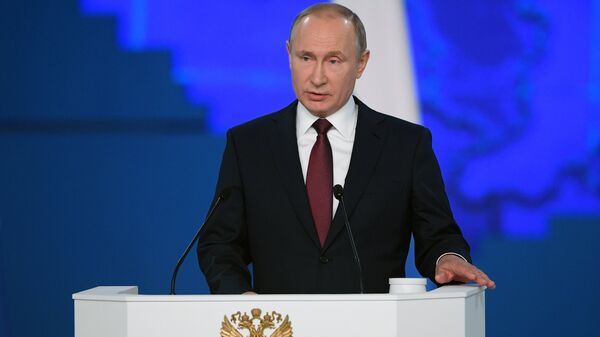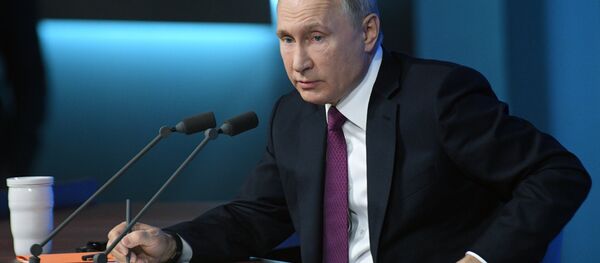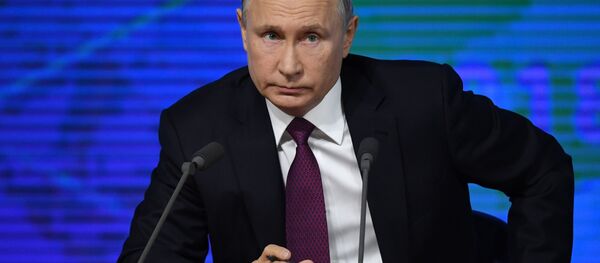Sputnik has discussed Vladimir Putin's State of the Nation address with Fred Weir, Russia correspondent for the Boston-based Christian Science Monitor.
Sputnik: So what's your impression of Vladimir Putin's address this year?
Sputnik: I think it's interesting that 94% of his speech was focused almost entirely on internal domestic issues and then just at the end there was 6% where he was discussing Russia's armaments and the response to America removing itself from the INF Treaty. In some senses it's only 6% in terms of a response to America when Russia does feel very badly done to in terms of America withdrawing itself with what they feel there's no actual provocation or reason to leave the INF Treaty. What do you feel the commentators, the mainstream media commentators are going to actually highlight in terms of this particular speech, because when President Putin was discussing the increasing the various medium-range missiles etc. he kept reiterating that Russia wasn't wanting to attack anyone, only wanted to protect its own country, its own sovereignty, what do you think mainstream media in America are going to think to this?
Fred Weir: He did brag about the weapons, the new Avangard hypersonic missile and so on, I suppose we will highlight that. It is remarkable that we're headed toward an age where there will not be any arms control limitations on the two big nuclear powers. I am probably much older than you but I grew up in a world where the two superpowers had decided that these runaway nuclear arms arsenals had to be contained, they had to be controlled, they had to develop not just treaties but verification procedures, and I have grown up and lived in that world. And since 2001 when the United States pulled out of the Anti-Ballistic Missile (ABM) Treaty we've seen the gradual unraveling of that, even though they did renew the strategic arms accord in 2010 that one is coming to an end as well.
READ MORE: Putin: Russia to Take Steps if US Deploys Its Short, Medium Range Missiles in EU
Sputnik: I think you've articulated the situation very well and there's a lot of nervousness from people, generally who are discussing this kind of thing every day and trying to understand the logic of it, especially when speaking to experts like yourself. Who and what forces in Washington really benefit the most from confrontation between Russia and the US? Is it the elitists, is it the people who that are driving the IMC, is it this neoliberal policy that Washington is sort of really driven in the last two years since Trump came to power, what's your take on it?
Fred Weir: Well, I thought a lot about those things in the old Cold War because as I said I'm an older fella.
Sputnik: I'm not that young either, actually, to be fair, and I remember as well back in the 70s and 80s. I am 52 just to let you know.
Fred Weir: I'm 67, so we share that experience. So what I did think about in those days, I even wrote a book about it at the time, there was a consensus, a Cold War consensus that has many dimensions to it, it's just one thing that drives this urge to confront, to build up arms. There's an ideological component, there's an economic component, political, daily politics play a role like there's nothing more convenient when you have problems then blaming the external enemy and you see that big time in the United States today. The reducing of a whole lot of the factors that brought Trump to power to Russia.
The views and opinions expressed in this article are solely those of the speaker and do not necessarily reflect those of Sputnik.





